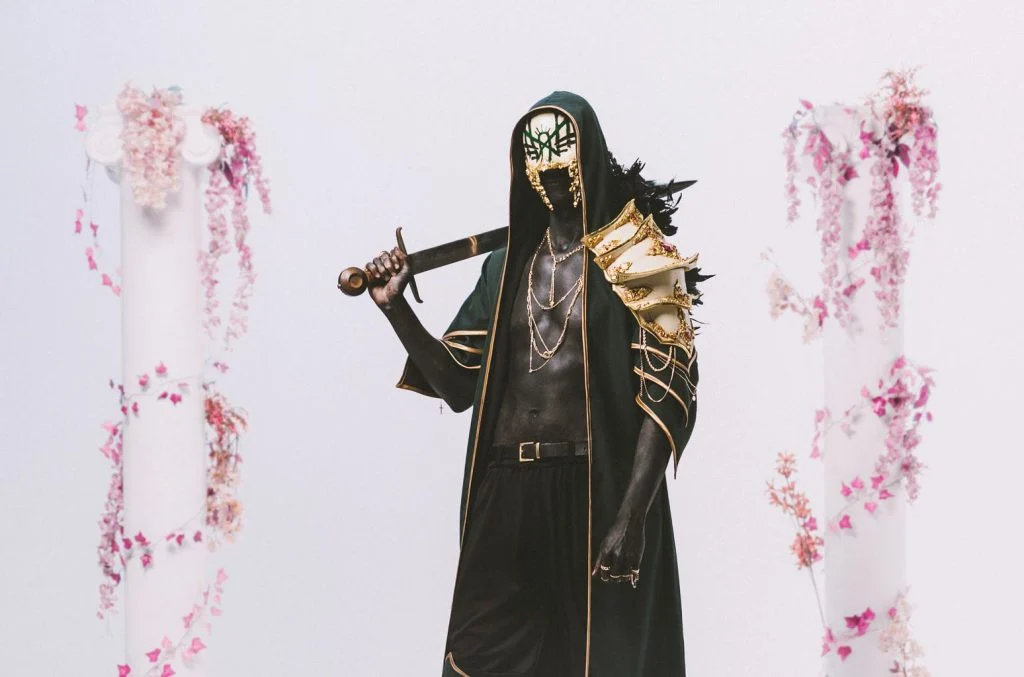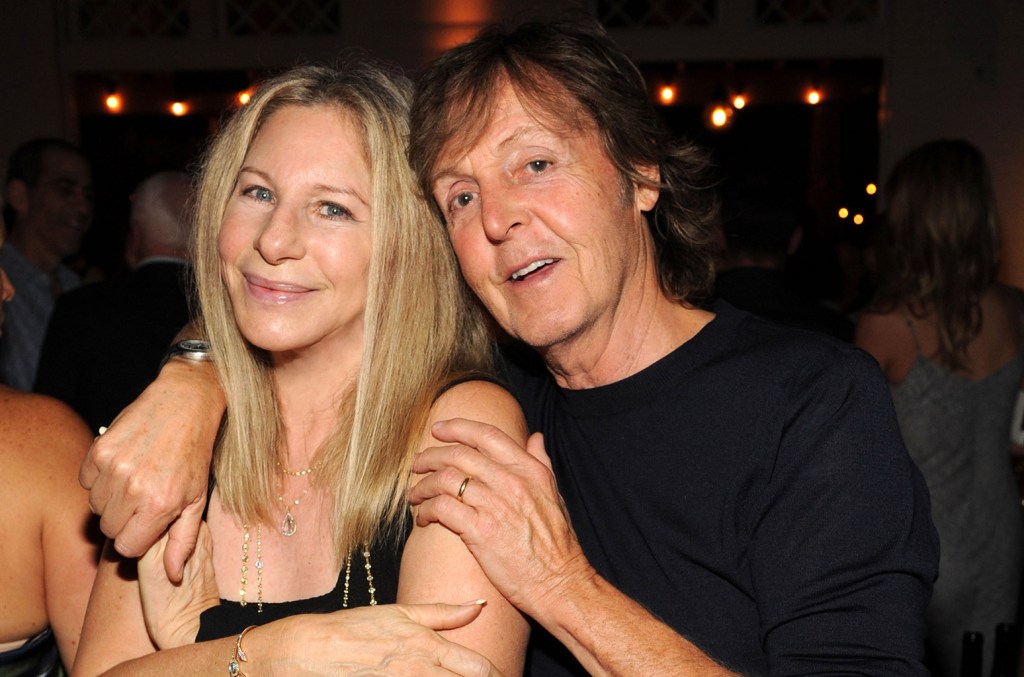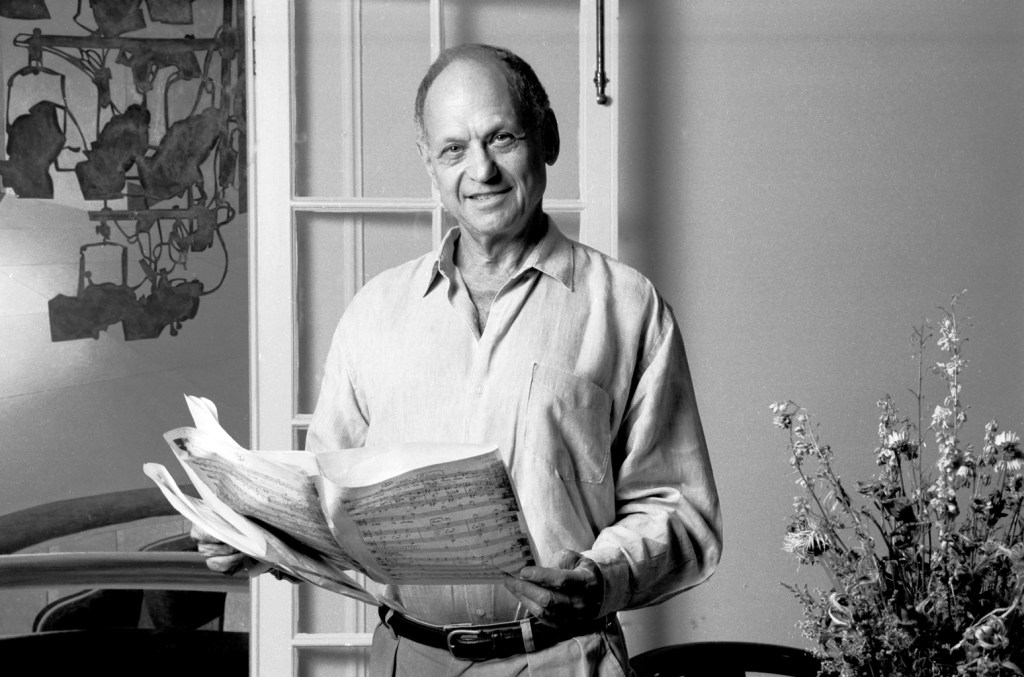Music
Page: 250
Morgan Wallen’s I’m the Problem is off to a blockbuster start. The country superstar’s fourth studio album, released Friday (May 16) through Big Loud/Mercury, is already breaking streaming records on Spotify and Amazon Music. On Friday afternoon, Spotify announced that the 37-track album had set a new benchmark as the most streamed country album in […]
Alex Warren has achieved a rare chart feat on the U.K.’s Official Singles Chart with his song “Ordinary” (May 16).
With its ninth week at No. 1, he is now the longest-running U.S. male solo chart-topper in over 70 years, surpassing Elvis Presley in the process. The King had an eight-week stay at the summit in 1960 with “It’s Now or Never,” one of 21 No. 1 singles in the U.K.
Florida-born artist Slim Whitman earned an 11-week stint at the top spot in 1955 with “Rose Marie,” the title track from the 1954 western epic starring Ann Blyth and Howard Keel.
In its 13th week on the Billboard Hot 100, “Ordinary” is now up to No. 2, closely trailing Kendrick Lamar and SZA’s “Luther,” which has had a 12-week stay at the summit. “Ordinary” has also hit the top spot on the Global 200 for a second consecutive week.
Trending on Billboard
Speaking to Billboard in January, Warren discussed using challenging moments in his personal life, including the passing of both of his parents and his stint of homelessness, in his material.
“I recently started doing this thing where I write about those [experiences], and I try to take control in a way,” he said. “For me, something really beautiful is taking something so sad and dark, and what most would view as something that ruined their life, and turn it into something that can help people.”
The remainder of the top five remains relatively unchanged with Ravyn Lenae’s “Love Me Not” (No. 2), Chappell Roan’s “Pink Pony Club” (No. 3), and WizTheMC and Bees & Honey’s “Show Me Love” (No. 4) all maintaining their positions from last week.
Sombr’s breakout hit “Undressed” is in the top five for the first time (No. 5), up one place from the previous week, while his song “Back to Friends” also rises three spots to No. 12.
The week’s highest new entry comes from Calvin Harris and Clementine Douglas, as their collaboration “Blessings” lands at No. 8. The feat gives Harris his 45th top 10 hit.
Sleep Token has secured its first U.K. No. 1 Album on the Official Albums Chart with Even in Arcadia (May 16). The masked metal band previously hit the No. 3 spot with their 2023 LP Take Me To Eden, and have three songs in this week’s U.K. top 40 singles. In June, the band are […]
Pitbull surprised Shakira‘s fans on Friday (May 16) by opening the Colombian superstar’s concert at MetLife Stadium with a rocker set of his own that included songs such as “Hotel Room Service,” Daddy Yankee’s “Gasolina” and guitar riffs of The White Stripes’ “Seven Nation Army.” The Cuban-American star was announced as a special guest, but […]
Jonah Kagen reigns on Billboard’s Alternative Airplay chart for the first time, topping the May 24-dated survey with “God Needs the Devil.”
The song, which rises a spot, marks Kagen’s first ruler on any Billboard ranking, earned with his second charted title. Previously, Kagen spent a week on Hot Dance/Electronic Songs in 2021 with the Matoma collaboration “Summer Feeling.”
Kagen becomes the sixth act to rule Alternative Airplay for the first time in 2025. Almost Monday accomplished the feat first in February (“Can’t Slow Down”), followed by Justice and Tame Impala (both on “Neverender” in March), Balu Brigada (“So Cold,” March) and Lola Young (“Messy,” April). Of that group, Justice, Balu Brigada and Young led in their first appearances on the list, like Kagen.
Explore
Explore
See latest videos, charts and news
See latest videos, charts and news
Roughly halfway through 2025, the year is the best for acts notching inaugural Alternative Airplay No. 1s with their first entries on the chart in five years; in 2020, Absofacto, White Reaper, Sub Urban and All Time Low all reigned on their first tries.
Trending on Billboard
Kagen’s 29-week trip to No. 1 is the lengthiest since 2023, when Bad Omens’ “Just Pretend” took 32 weeks.
Concurrently, “God Needs the Devil” lifts 9-8 for a new high on the all-rock-format, audience-based Rock & Alternative Airplay chart with 2.6 million audience impressions, up 10%, in the week ending May 15, according to Luminate. The song peaked at No. 22 on Adult Alternative Airplay in November.
“God Needs the Devil” is on Kagen’s EP Black Dress, which was released in November and has earned 27,000 equivalent album units to date.
All Billboard charts dated May 24 will update on Tuesday, May 20, on Billboard.com.
From career milestones to new music releases to major announcements and those little important moments, Billboard editors highlight uplifting moments in Latin music. Here’s what happened in the Latin music world this week.
Explore
See latest videos, charts and news
See latest videos, charts and news
Gushing Over Karol G
Thalia reacted to Karol G’s Netflix documentary, Tomorrow Was Beautiful, with a heartfelt post on social media. “Seeing you shine and hearing that, in some way, I was part of your inspiration touched me to the core,” the Mexican singer and actress expressed. “Thank you for that lovely detail in your documentary. You also inspire me with your strength, your authenticity, and that enormous heart you put into everything you do.”
In the documentary, a young Karol G is seen talking about Thalia’s impact and even singing “Piel Morena” during a local TV interview. “How beautiful it is to see how women can push each other forward, rise up, and celebrate every step together. Here I am, always applauding and admiring you, beautiful babe. Keep flying high, this is just the beginning!” Thalia continued.
Trending on Billboard
@thalia @Karol G… verte brillar y escuchar que, de alguna manera, fui parte de tu inspiración me emocionó hasta el alma. Gracias por ese detalle tan lindo en tu documental. Tú también me inspiras con tu fuerza, tu autenticidad y ese corazón gigante que dejas en todo lo que haces. ❤️ Qué hermoso es ver cómo las mujeres podemos impulsarnos, elevarnos y celebrar juntas cada paso. Aquí estoy, siempre aplaudiéndote y admirándote, bichota hermosa. ¡Sigue volando alto, que esto apenas comienza! #MujeresQuelnspiran #OrgulloLatino #BichotaPower ♬ sonido original – Thalia
Blessing the Block
Fuerza Regida’s frontman Jesus Ortiz Paz (JOP) hit the streets for his birthday that took place on May 13. But, instead of flaunting his gifts on social media, he opted to give back to the community. In a short clip posted on social media, the Mexican-American singer is seen giving one of his neighbors money, to which she reacts with a thank you, wishes him a happy birthday, and gives him a tight hug. “Blessed the block for his birthday,” reads the video’s caption on TikTok.
Also this week, Fuerza Regida’s new studio album, 111XPANTIA, debuted No. 2 on the all-genre Billboard 200 chart, becoming the highest-charting Regional Mexican album on the chart and highest-charting Spanish-language album ever by a duo or group. Watch the sweet JOP and vecina encounter below:
Taking Over New York City
This week, the Empire State Building in New York City honored Gloria Estefan’s 50-year music career. In celebration, the iconic building lit up in blue, green, and hot pink to not only tribute her five decades in music, but also commemorate all of her No. 1 hits, including “Raíces,” which is currently at the top of the Billboard Latin Airplay, Latin Pop Airplay, and Tropical Airplay charts. “Wow wow!!! Thank you Empire State Buildingfor lighting up theNew York sky in celebration of 5 decades of No.1s. We feel the love!!” the Cuban-American artist expressed, along with a recap video of her, and Emilio Estefan Jr.s, visit to the coveted building.
Gloria Estefan visits the Empire State Building on May 12, 2025 in New York City.
Roy Rochlin/Getty Images for Empire State Realty Trust
Celebrating a Queen
Olga Tañón has been named the Queen of the 2025 National Puerto Rican Day Parade set to be celebrated along fifth avenue in New York City on Sunday, June 8. The Puerto Rican merengue star, who was recently honored with the Lifetime Achievement Award at the 2025 Billboard Latin Women in Music Awards, “will lead the parade alongside other notable figures, sharing a day of music, pride, and celebration with her people,” according to an official statement.
“Being part of this tradition that celebrates with such love our roots, culture, and the unbreakable spirit of Puerto Ricans in the diaspora is an immense gift,” the renowned “Mujer de Fuego” (woman of fire) expressed on Instagram. “My heartfelt thanks to the National Puerto Rican Day Parade for this special distinction. Let’s bring all our love, commitment, flavor, and fire! Let’s represent it properly!”
Barbra Streisand has recruited Paul McCartney to join forces for a new version of his 2012 single “My Valentine,” which was released Friday (May 16) via Columbia Records. “What if it rained? We didn’t care/ He said that someday soon the sun was gonna shine/ And he was right, this love of mine/ My valentine,” […]
Drake wants fellow Canadian rapper Tory Lanez to “come home soon” after he was stabbed multiple times in prison and hospitalized earlier this week. On his Instagram Story Friday (May 16), Drake wrote “@torylanez come home soon” while sharing a Change.org petition urging California Governor Gavin Newsom to pardon the fellow Toronto MC, who’s currently […]
Composer Charles Strouse, who died Thursday at age 96, was Broadway royalty – a three-time Tony winner for Bye Bye Birdie, Applause and Annie. He also won a Grammy for the Annie cast album and a Primetime Emmy for a 1996 revival of Bye Bye Birdie starring Jason Alexander and Vanessa Williams. Strouse was inducted into the Songwriters Hall of Fame in 1985.
Even if you’re not a Broadway buff, you know at least a few of Adams’ songs. Annie spawned the instant standard “Tomorrow,” which Barbra Streisand covered on her platinum album Songbird. Jay-Z had a top 15 hit on the Billboard Hot 100 in 1999 with “Hard Knock Life (Ghetto Anthem),” which sampled “It’s the Hard Knock Life” from Annie.
Bye Bye Birdie, about a pop star who was drafted to go into the Army (inspired by Elvis Presley, the biggest pop star of the 1950s, who experienced a similar fate at the height of his fame), also spawned a standard – the jaunty “Put on a Happy Face,” which Dick Van Dyke performed in the musical (and in the 1963 film version). The song was covered by such artists as Nancy Wilson, Johnny Mathis, The Supremes and Tony Bennett. Bye Bye Birdie also included the spirited “A Lot of Livin’ to Do,” which was recorded by such stars as Bobby Rydell.
Trending on Billboard
Strouse was born Charles Louis Strouse in New York City on June 7, 1928. In 1949 he met lyricist Lee Adams at a party, which led to a long and successful musical partnership. The duo began by writing tunes for numerous revues, as well as special material for performers such as Kaye Ballard, Carol Burnett, Jane Morgan and Dick Shawn.
In 1958, Strouse teamed with Fred Tobias to write “Born Too Late,” which became a No. 7 hit on the then-new Hot 100 for Poni-Tails, a female vocal trio.
Strouse teamed with Adams to write the songs for several long-running Broadway musicals. They won Tonys for best musical in 1961 for Bye Bye Birdie (for which Van Dyke won a Tony) and in 1970 for Applause (for which Lauren Bacall won a Tony). They were nominated for a Tony for best musical in 1965 for Golden Boy (for which Sammy Davis Jr. was nominated for a Tony).
Even some of their lesser hits spawned memorable songs. 1962’s All American, which starred Ray Bolger, closed after 80 performances. However, one song from the score, “Once Upon a Time,” became an oft-performed standard of the 1960s, with recordings by such top singers as Tony Bennett, Vic Damone, Perry Como, Bobby Darin and Frank Sinatra. Richard Carpenter performed the poignant ballad at a 1983 concert soon after the death of his sister, Karen Carpenter.
Strouse scored the 1967 film classic Bonnie and Clyde, which brought him a Grammy nod for best original score written for a motion picture or TV special. Strouse and Adams wrote songs for The Night They Raided Minsky’s, a 1968 film produced by Norman Lear. While that film was only a modest hit, their collaboration with the producer would be a blockbuster.
In 1970, Strouse and Adams were asked to write a theme song for a TV show that Lear was developing. The show, which debuted in January 1971, was All in the Family, the biggest and most groundbreaking TV hit of the decade. Series stars Carroll O’Connor and Jean Stapleton performed the theme song “Those Were the Days,” which perfectly captured the tone of the show, from its opening lines: “Boy, the way Glenn Miller played/ Songs that made ‘The Hit Parade’/ Guys like us we had it made/ Those were the days.” The title sequence, of Archie and Edith performing the tune at their piano, is said to have been inspired by Strouse’s childhood memories of playing music with his parents at home. Released as a single, the original version reached No. 43 on the Hot 100 in 1972.
Several of Strouse’s scores climbed high on the Billboard 200. The Bye Bye Birdie cast album reached No. 12 (the subsequent film soundtrack climbed even higher – No. 2 in 1963). A TV soundtrack to All in the Family (which included “Those Were the Days”) reached No. 8 in 1972. The Annie cast album petered out at No. 81, but went platinum.
While Strouse is probably best known for his long partnership with Adams – who is still living at age 100 – he also collaborated with other lyricists. He and Martin Charnin teamed to write Annie, which won seven Tony Awards, including best musical and best original score.
Strouse received three subsequent Tony nominations for best original score, working with a different lyricist on each of the shows. He teamed with David Rogers on Charlie and Algernon (1981); with Steven Schwartz on Rags (1987); and with Richard Maltby, Jr. on Nick and Nora (1992).
Two revivals of Annie have received Tony nominations for best revival of a musical. In addition, a live staging of the show, titled Annie Live!, was produced for NBC in 2021.
Strouse loved what he did and remained active, which was doubtless a key to his longevity. “I work every day,” he told The Associated Press during an interview on the eve of his 80th birthday in 2008. “Activity — it’s a life force. When you enjoy doing what you’re doing, which I do very much, I have something to get up for.”
Strouse died at his home in New York City, his family said. Strouse’s wife, director-choreographer Barbara Siman, died in 2023. He is survived by four children, Ben, Nick, Victoria and William.
Kelly Clarkson kicked off The Kelly Clarkson Show on Thursday (May 15) by performing “Still Bad” with help from Lizzo herself.
The R&B star opened the number with Clarkson ably handling harmony duty on the first verse before the pair launched into the track’s celebratory chorus in unison, singing, “I don’t need him, I need a drink/ Let’s turn this pain into some champagne, baby/ Like cheers, bi—, it’s been a day/ Might take that last flight out to Vegas, what y’all think?”
For the second verse of the breakup anthem, Lizzo cedes the floor to the talk show host with a tossed-off “Tell ’em, Kelly!” At which point America’s original idol swaggers, “Plot twist: I’m doing great/ I make that been-through sh– look sexy anyway/ I don’t need him, I need to throw ass, been a minute/ Break fast with my bi—es/ Real love, real life, damn, I’ve been missing.”
Explore
See latest videos, charts and news
See latest videos, charts and news
“Still Bad” serves as the latest single from Lizzo’s upcoming fifth studio album, Love in Real Life, which is set to drop sometime later this year. The project was also preceded by the title track as its swinging, rock-infused lead single. Meanwhile, Clarkson just unveiled her new single “Where Have You Been.”
Trending on Billboard
This week’s batch of episodes on The Kelly Clarkson Show have been filled with special musical numbers beyond the host’s usual daily Kellyoke picks, including in-studio performances by Ledisi, Sierra Hull and Operation Mincemeat star Jak Malone, as well as appearances by Bernadette Peters, Darren Criss, Blake Shelton, Anna Kendrick and more.
Watch Lizzo and Kelly duet on “Still Bad” below.

 State Champ Radio
State Champ Radio 









